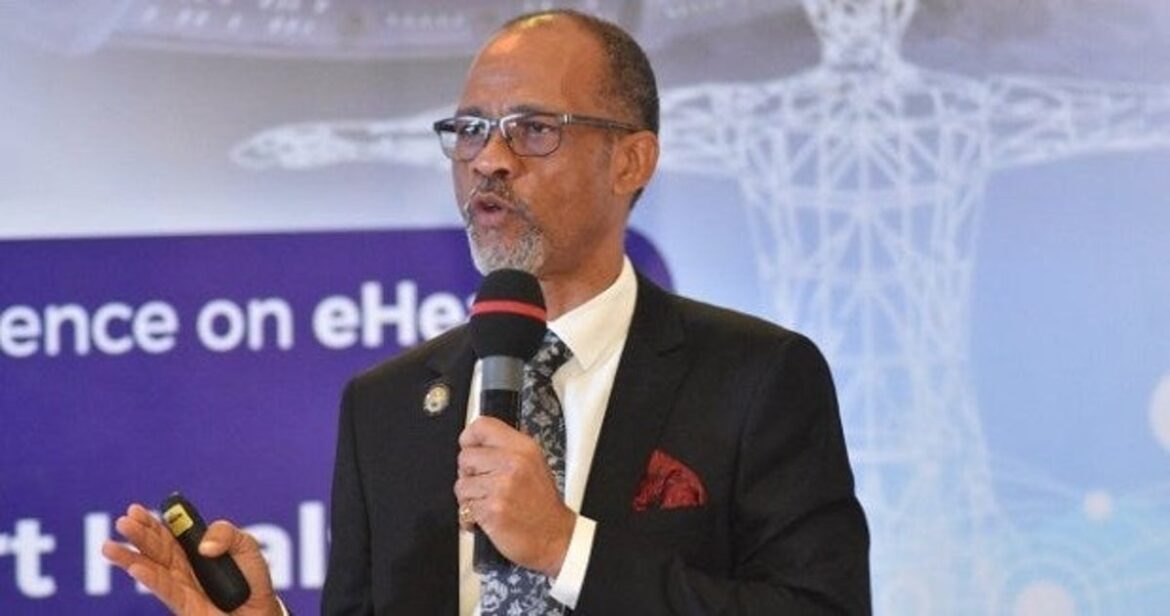By Iyemah David
The Lagos State Commissioner for Health, Professor Akin Abayomi said that a robust public-private approach helped the state government managed the COVID-19 pandemic.
Abayomi said this at the Southwestern States Peer Learning Roundtable on COVID-19 and Health Security held at Infectious Diseases Hospital (IDH) Yaba, Lagos, organised by the African Health Budget Network (AHBN).
The COVID-19 and health security accountability scorecard were developed by government agencies, Civil Society Organisations (CSOs), media and young people through; the adaptation of indicators from the World Health Organisation (WHO) Joint External Evaluation and tool for evaluation of International Health Regulation (IHR) second edition.
The review of government documents including budget and presentations, review of COVID-19 related government online dashboards, advocacy/retreat meeting with relevant health agencies.
The commissioner said that to successfully manage the pandemic, the state government needed to deploy a competent and lean decision-making system to drive its response.
He said that the Incident Command System incorporates all the pillars of the State’s response into a centrally planned and agile decision-making system.
Abayomi added that the Incident Command System was led by the Governor of Lagos State as the Incident Commander and the Commissioner for Health as the Deputy Incident Commander.
Dr Tomi Coker, Ogun state Commissioner for Health, said that each state’s needs differ while narrating their experience on the state response to the pandemic.
Coker lamented the high cost of managing a pandemic and how state in the Southwest sub-region needed to work together to strengthen their health security capabilities, in terms of testing and sample collection.
She also suggested that the region can all have a rack at the Lagos state Bio-bank to store all samples from the region for future purposes.
The Director of the Lagos State Bio-Bank, Dr Bamidele Mutiu said that private labs were selected in the state because they possess the equipment and expertise to test for COVID-19 within the parameters of their testing strategy.
Mutiu said that the idea was to decentralize testing while maintaining the integrity and regulation of sample collection, testing, and result validation in the state.
He said that the state leveraged the capacity in the private sector to ramp up testing.
“Given the State’s decision to commence community-based care, polymerase chain reaction testing became more widely available. The idea was to decentralize testing, while we maintained the integrity and regulation of sample collection, testing and result validation.
“There are currently a larger number of PCR machines in the private sector than there were in the public sector. The state government expected an increased request for tests as private organizations insisted on testing their employees before resumption,” he explained.
Chairman of the National Advocates for Health (NA4H), Mohammed Usman, said that as biological threats continue to be a significant international security concern, the COVID-19 pandemic has driven home the point that Nigeria must learn the lessons from past health emergencies and finally break the cycle of pandemic panic and neglect.
Usman said that the pandemic response created new challenges in these areas.
“It forced our health care and public health systems to do more stretching the capacity of the workforce and systems for disease surveillance, performing laboratory diagnostics, and coordinating emergency responses,” he said.
Also speaking, the Coordinator of the AHBN, Dr Aminu Magashi Garba, stressed the need for collaboration in the region.
Magashi said that the growing importance of health security intelligence and the role it can play in response to potential threats can not be overemphasised.
He tasked the region to focus on intelligence collection, capability, and threat mitigation, and how this could be mobilized to address the harmful impacts of biological threats.
Health Reporters recalls that the scorecard was developed to report the CSO’s review of the Southwestern States’ capacity on preparedness and response to health security and COVID-19.
The scorecard serves as an evidence tool to be used by all stakeholders including CSOs, professionals, media, advocates, young people and development partners to strategically influence actions that will mobilize resources, and promote prudent spending, transparency and accountability of COVID-19 and health security fund.
The scorecard indicators were grouped into two main categories; prevent and respond.
It will also be recalled that the funding for the development, design and production of the scorecard was made available by the MacArthur Foundation through its COVID-19 Equitable Recovery Initiative.




